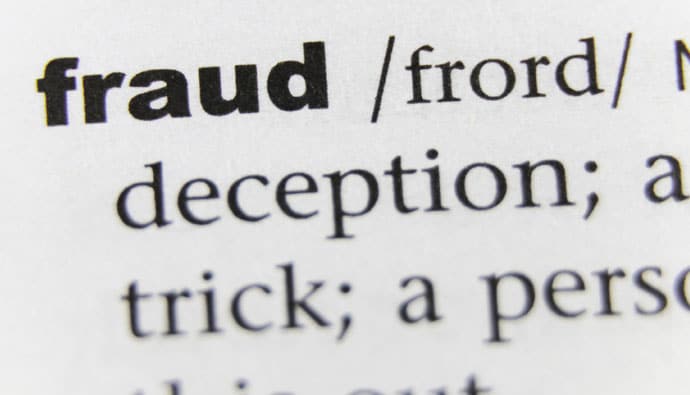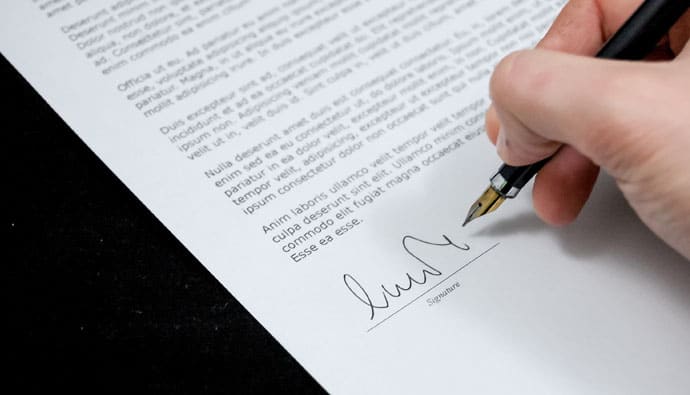
What Are the Elements of Fraud – and Why do They Matter?
December 4, 2018
Receiving a Target Letter
If you get a letter from an Assistant United States Attorney that says you are the “target” of a grand jury investigation then you have been given what lawyers call a “target letter” (federal target letter). There are a few ways this could happen. Maybe a federal agent showed up at your home or your office and asked to talk to with you. Maybe you have already talked to a U.S. Department of Justice agent or a federal prosecutor and maybe you have not. Either way – what’s next?”
What does it mean to be the “target” of an investigation?
First, you should understand what a “Target” means. When they are investigating potential charges, federal prosecutors and agents are told to put people they want to talk to into three categories: witnesses, subjects, and targets.
Witnesses are people who the government does not intend to charge with a crime. They do not see witnesses as having committed criminal acts, but they hope the witnesses will give them information to explain the situation they are investigating and point them in the direction of people they will charge with a crime.
Subjects are people who were involved in the situation in some way and who the government wants to get more information on. Government agents are told to classify someone as a subject if they are unsure whether they will charge them with a crime or not.
Targets are people for whom the prosecutor has “substantial evidence” linking them to the commission of the crime they are investigating. Prosecutors are not supposed to call someone a target unless they anticipate charging them with a crime – therefore if you are a “target” (having received a federal target letter), then the government already thinks it has enough evidence to begin the criminal proceedings against you.
As the name implies, someone who is a target is actively in the gun sights of the United States government. Targets are typically – but not always – charged or indicted with crimes.
All this is here to tell you what you probably already know – a target letter is very serious and you should react seriously to getting one. You shouldn’t be taking it lightly. If you’re researching lawyers – that’s a good first step.
OK, so what should I do when I receive a Target Letter?
The first consideration, and one that can’t be overstated enough, is to talk to a lawyer before you talk to the law enforcement agents or prosecutor. This is true whether you have already been interviewed about the investigation or not. It does not matter whether you know you are innocent and want to explain yourself, or whether you believe you did something wrong and want to accept what comes in from the indictment. You may have heard the Miranda warning on TV or movies explaining that what you say “can and will” be used against you. That is true. There can be severe and permanent negative outcomes if you talk to prosecutors or agents. These include the very real risk of getting charged with “Making a False Statement to a Federal Official” if the prosecutors and FBI agents think what you are telling them is untrue. Innocent comments can be misinterpreted or misunderstood or made to sound sinister by strong prosecutors.
Also, accused people should also avoid talking to potential witnesses about the case – and you should be especially careful because you don’t know who could be a witness, who could be working for the government as an informant, or even if the government is tapping your phone or intends to capture your emails.
Should I do what the letter asks?
Target letters typically ask you to take some affirmative action. Sometimes the information in the letter just tells you to hire a lawyer and have them get in touch with the federal prosecutor investigating the case. As explained above, this is a wise course of action. But other times prosecutors go further in their letters, sometimes inviting you to (for example) voluntarily testify before the grand jury. And you may be tempted to do so, or may be tempted to call the prosecutor and explain your side of the story. But you should think long and hard about whether that is a good thing to do. Be aware that you can make your situation much worse by trying to explain your side of the story too early. You should talk to a lawyer before you do so.
What are my options after I receive the Federal Target Letter?
The good news is that you have different courses of action available to you.
It is sometimes wise to try keep the prosecutors in the dark as much as possible and hope they are not locked in on prosecuting you. On the other hand, sometimes it may be best to quickly plead guilty and minimize your potential exposure. It is sometimes wise to try to give the prosecutors more information and hope they can be talked out of prosecuting you. And it is sometimes wise to, knowing the prosecutor will almost certainly charge you, get ready to fight the charges tooth and nail.
Prosecutors send federal target letters for a few different reasons – sometimes to try to get you to “play ball.” Whether that is a good idea or not depends on the facts of the situation. You should talk with the lawyer you retain about the positives and negatives of pursuing these different options, about how likely it is you will be prosecuted, and about likely outcomes at trial. These are hard decisions and you should find a lawyer you trust to help you make them. A careful lawyer can help also help you grapple with what, if anything, to tell the people close to you like your friends, family members, and coworkers.
A target letter is an important turning point in your situation. Taking it seriously and reacting appropriately can put you in a better position to manage what comes next. A lawyer can help with this — it is dangerous to “go it alone” against the prosecutor and the agents who are seeking an indictment against you.
Contents

